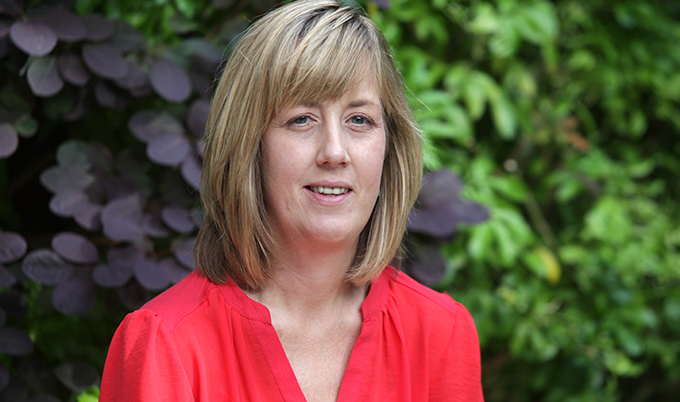New health partnership delivers world-class patien
New health partnership delivers world-class patient care
Published on: 9 October 2015
A new partnership which harnesses world-class expertise will ensure patients in the North East will benefit sooner from new treatments, diagnostics and prevention strategies.
World-class healthcare
Bringing together Newcastle Hospitals and Northumberland, Tyne and Wear NHS Foundation Trusts with Newcastle University, the newly-formed 'Newcastle Academic Health Partners' will deliver world-class healthcare through collaborative scientific research, education and patient care and mobilise the collective capabilities of the three organisations in support of economic growth.
The alliance will focus on delivering scientific advances that improve physical and mental health in common age-related chronic diseases, such as dementia and musculoskeletal disease. It will also specialise in improving understanding and treatment of cancer, diseases that affect the brain and those affecting children.

Delivering trailblazing health services
Working across the two trusts, Newcastle Academic Health Partners will translate clinical research into practice developing improved diagnostic, prevention and treatment strategies as well as an innovative health education programme.
The partners have developed a five year plan that includes recruiting and training the next generation of researchers and providing national leadership in healthcare education. This collaborative approach is helping attract some of the brightest researchers and practitioners to Newcastle and the North East region.
Partnership tackles Chronic Fatigue Syndrome
Patients with Chronic Fatigue Syndrome (CFS) are already benefitting from the medical expertise provided by Newcastle Academic Health Partners.
Professor Julia Newton, Clinical Professor of Ageing and Medicine at Newcastle University, who also works within Newcastle upon Tyne Hospitals NHS Foundation Trust, has led a team of experts who have found an abnormality of a protein which could lead to the development of new drugs and treatments.
The study, which was published in the journal PLOS ONE, is a collaboration of Newcastle Hospitals and Northumberland, Tyne and Wear NHS Foundation Trusts with Newcastle University. Researchers have found for the first time that patients with the condition have a defect in a molecule associated with the production of a protein known as AMP kinase (AMPK).
Professor Newton said: "At the moment we don't know what causes CFS and, as a result, there are no biological-based treatments that can be given to patients. There are a great number suffering significant problems with CFS and our work is heading towards looking for medications that we can use to improve patients' symptoms and hopefully find a cure."
Research study identifies condition's defect
CFS is a common condition that affects approximately 600,000 people in the UK. It causes crippling fatigue, often with severe muscle pain that does not go away, and can create long-term disability.
Forty people - twenty with CFS and twenty without - took part in the study and each exercised in an MRI scanner while experts measured how much acid accumulated in their legs while they worked.
Participants for the study were recruited via Newcastle Hospitals NHS Foundation Trust and experts at Northumberland, Tyne and Wear NHS Foundation Trust screened those involved for symptoms of depression to ensure any abnormalities found were linked solely to CFS and nothing else.
Initial findings revealed that CFS patients developed twenty times more acid in their muscles than those without the illness, highlighting the defect with AMPK. Muscle biopsies were obtained from ten patients with the condition and ten without. Muscle cells were grown in a laboratory to replicate the exercise done in an MRI scanner to analyse what changes occur during exercise.
Professor Newton said: "Our study focused on whether there were any biochemical changes so that we can start to understand what happens in the muscle with fatigue and, therefore, explore if there are drugs we can use to reverse this. What we have been able to identify is that production of AMPK is impaired in patients with CFS compared to those without. This is an important finding because there are drugs that are currently already available that we know will modify this abnormality.
"The next step is to carry out experiments to see whether or not we can reverse changes in AMPK with drugs that might ultimately form the basis of clinical trials. In a condition where we have no clinical trials of treatments ongoing in the UK at the moment then this is an exciting step towards that holy grail of trialling medicinal products."
Partnership enhances patient care
One patient who knows first-hand the importance of this research is Kirsty Harwood who was diagnosed with CFS a year ago, after suffering symptoms for a number of months. The mother-of-two, from High Heaton, Newcastle, has welcomed the research breakthrough brought about by Newcastle Academic Health Partners.
Kirsty, 46, an Environment Agency worker, said: "When you're diagnosed with the condition you feel isolated as there is no treatment or cure and it turns your life upside down. I went from being a fully independent working mum, to becoming dependent on my partner to look after me and my 2 daughters in the space of 2 weeks. We don't know what and may never know what caused it, just that we now have to deal with it.
"The research that's going on in the North East is exciting and offers real hope to those suffering with the illness that a treatment may become available. It would be amazing for people, and their families, if medication could be established to treat the debilitating symptoms that we have to deal with each day."
Professor Newton added: "A real strength in the North East is that the University and hospital trusts work closely together, pulling on each other's academic and clinical strengths so that we can be sure our work is of the very highest quality to help patients."
Those suffering with CFS can access a volunteer run patient support group at Crestachamps.blogspot.co.uk or on the Cresta Fatigue Clinic Health Champions Facebook page.
Reference
Abnormalities of AMPK Activation and Glucose Uptake in Cultured Skeletal Muscle Cells from Individuals with Chronic Fatigue. Audrey E Brown, David E Jones, Mark Walker, Julia L Newton. PLOS ONE DOI: 10.1371/journal.pone.0122982



